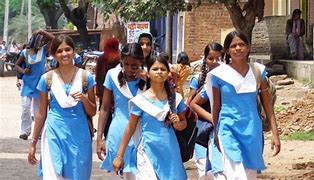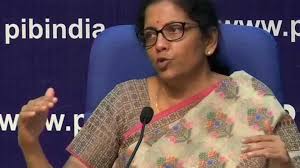Feature
Cash-for-vote scam: TDP MLA produced in court

Hyderabad: The Anti-Corruption Bureau (ACB) of Telangana on Tuesday produced Telugu Desam party (TDP) legislator Sandra Venkata Veeraiah in a city court in the cash-for-vote case and sought his judicial custody.
The ACB informed the court that the TDP legislator has been included as the fifth accused in the case as there is a strong evidence of his involvement.
In a memo filed in the court, the ACB told the court that the MLA spoke to other accused over phone on many occasions. It sought his judicial custody for 14 days.
The agency also conveyed to the court that Veeraiah tried to evade questioning last month by getting himself admitted in a hospital in Rajahmundry in neighbouring Andhra Pradesh.
The MLA’s lawyer opposed the petition on the ground that ACB did not take the assembly speaker’s permission before arresting him.
The judge, who heard arguments from both sides, is expected to pronounce his orders later on Tuesday.
The ACB had arrested the MLA on Monday evening after day-long questioning at the ACB office in Banjara Hills.
He is the second TDP legislator to be arrested in the case.
The ACB on Saturday issued him a fresh notice to appear before 5 p.m. on July 6.
The agency summoned him for questioning last month too but he failed to respond. He, later, sent a letter to the ACB, seeking 10 days’ time to appear before it, citing ill-health.
Veeraiah represents Sattupalli assembly constituency in Khammam district of Telangana.
The ACB last month quizzed V. Narender Reddy who was the TDP-BJP candidate in the Telangana legislative council elections but he was not arrested.
TDP legislator Revanth Reddy was arrested by the ACB on May 31 while he was offering Rs.50 lakh as bribe to nominated member Elvis Stephenson reportedly to induce him to vote for Narender Reddy.
The ACB, which had laid a trap on a complaint by Stephenson, also arrested two aides of Revanth Reddy.
All the three were granted bail by the Hyderabad High Court last week.
The fourth accused Jerusalem Mathaiah is absconding and is believed to be hiding in Andhra Pradesh.
Entertainment
Meghalaya Reserves Legalized Gambling and Sports Betting for Tourists

The State Scores Extra High on Gaming-Friendly Industry Index
Meghalaya scored 92.85 out of 100 possible points in a Gaming Industry Index and proved to be India’s most gaming-friendly state following its recent profound legislation changes over the field allowing land-based and online gaming, including games of chance, under a licensing regime.
The index by the UK India Business Council (UKIBC) uses a scale of 0 to 100 to measure the level of legalisation on gambling and betting achieved by a state based on the scores over a set of seven different games – lottery, horse racing, betting on sports, poker, rummy, casino and fantasy sports
Starting from February last year, Meghalaya became the third state in India’s northeast to legalise gambling and betting after Sikkim and Nagaland. After consultations with the UKIBC, the state proceeded with the adoption of the Meghalaya Regulation of Gaming Act, 2021 and the nullification of the Meghalaya Prevention of Gambling Act, 1970. Subsequently in December, the Meghalaya Regulation of Gaming Rules, 2021 were notified and came into force.
All for the Tourists
The move to legalise and license various forms of offline and online betting and gambling in Meghalaya is aimed at boosting tourism and creating jobs, and altogether raising taxation revenues for the northeastern state. At the same time, the opportunities to bet and gamble legally will be reserved only for tourists and visitors.
“We came out with a Gaming Act and subsequently framed the Regulation of Gaming Rules, 2021. The government will accordingly issue licenses to operate games of skill and chance, both online and offline,” said James P. K. Sangma, Meghalaya State Law and Taxation Minister speaking in the capital city of Shillong. “But the legalized gambling and gaming will only be for tourists and not residents of Meghalaya,” he continued.
To be allowed to play, tourists and people visiting the state for work or business purposes will have to prove their non-resident status by presenting appropriate documents, in a process similar to a bank KYC (Know Your Customer) procedure.
Meghalaya Reaches Out to a Vast Market
With 140 millions of people in India estimated to bet regularly on sports, and a total of 370 million desi bettors around prominent sporting events, as per data from one of the latest reports by Esse N Videri, Meghalaya is set to reach out and take a piece of a vast market.
Estimates on the financial value of India’s sports betting market, combined across all types of offline channels and online sports and cricket predictions and betting platforms, speak about amounts between $130 and $150 billion (roughly between ₹9.7 and ₹11.5 lakh crore).
Andhra Pradesh, Telangana and Delhi are shown to deliver the highest number of bettors and Meghalaya can count on substantial tourists flow from their betting circles. The sports betting communities of Karnataka, Maharashtra, Uttar Pradesh and Haryana are also not to be underestimated.
Among the sports, cricket is most popular, registering 68 percent of the total bet count analyzed by Esse N Videri. Football takes second position with 11 percent of the bets, followed by betting on FIFA at 7 percent and on eCricket at 5 percent. The last position in the Top 5 of popular sports for betting in India is taken by tennis with 3 percent of the bet count.
Local Citizens will Still have Their Teer Betting
Meghalaya residents will still be permitted to participate in teer betting over arrow-shooting results. Teer is a traditional method of gambling, somewhat similar to a lottery draw, and held under the rules of the Meghalaya Regulation of the Game of Arrow Shooting and the Sale of Teer Tickets Act, 2018.
Teer includes bettors wagering on the number of arrows that reach the target which is placed about 50 meters away from a team of 20 archers positioned in a semicircle.
The archers shoot volleys of arrows at the target for ten minutes, and players place their bets choosing a number between 0 and 99 trying to guess the last two digits of the number of arrows that successfully pierce the target.
If, for example, the number of hits is 256, anyone who has bet on 56 wins an amount eight times bigger than their wager.























